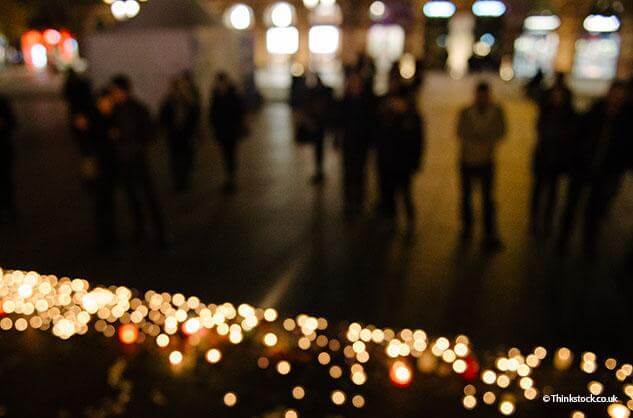New research carried out by Victim Support (VS) has found that the lack of a widely recognised definition of a ‘victim’ of terrorism is putting at risk survivors receiving the emotional and practical help they need after being caught up in an attack.
Families bereaved by terrorism have automatic access to high quality care through the government funded Homicide Service – which is delivered by Victim Support – but some British citizens who survive an attack abroad and suffer psychological or less serious physical injuries fall through gaps in the system. Many are left struggling and only receive help after referring themselves.
The new VS report, ‘Meeting the needs of survivors and families bereaved through terrorism’, also finds that survivors can struggle to know where to turn to for information and support in the days and weeks following a terrorist incident.
A survivor of the Paris attack, the first anniversary of which falls on Sunday 13 November, told VS: “…they class me as a ‘witness’ to the murder of one individual (a British citizen). But I am not just a witness – I am also a victim. Extremists tried to kill me and I am still struggling with the impact of it on my life. Victims should not be fighting for support and recognition. We need to focus on our recovery and deserve to be supported.”
The survey reveals the significant emotional and psychological effects of terrorism and the shortfalls in provision of care. 93.5% of survivors suffered effects including difficulties sleeping, intense distress when reminded of the incident, anger, flashbacks and anxiety. 78.8% required emotional and psychological support. Other apparent shortcomings of the current system include financial hardships made worse by challenges in claiming compensation from the Criminal Injuries Compensation Authority (CICA) and a lack of assistance in dealing with excessive media attention.
A survivor of the attack in Sousse, Tunisia on 26 June 2015 said: “I was injured and, as a result, hospitalised. There is still a long recovery period ahead of me. My life has changed beyond recognition… I don’t know when I will be able to come back to work… I still don’t socialise as I used to… being able to go to the cinema with a friend, or walk in the park, or sit in a restaurant. It is really hard and a lot to take in.”
In the report, VS makes a series of recommendations based on the findings of its research. These include mapping out a seamless pathway of support, which should be agreed by all agencies involved and which ensures support is provided to direct witnesses as well as those injured or bereaved by terrorism. VS also recommends that information for survivors and the bereaved is provided in a single online information and support portal.
Cathy Owen, National Homicide Services Manager for independent charity Victim Support, says: “Sadly, the frequency of international terrorist attacks continues to rise and we know, from supporting survivors and the bereaved, just how devastating and long lasting the psychological, physical, social and financial effects can be.
“While there are positive aspects to the current system, such as the support provided by Humanitarian and Survivor Assistance Centres, improvements clearly need to be made. We hope this report will encourage all the agencies involved to work together to ensure that everyone caught up in such harrowing events receives the support and assistance they deserve.”
Getting support
If you’ve been affected by crime and need support, call our Supportline on 08 08 16 89 111 or request support online. You can also contact us for support using Next Generation Text 18001 08 08 16 89 111.
Downloads
Victim Support_Meeting the needs of survivors and families bereaved thro…_0.pdf 1 MB

